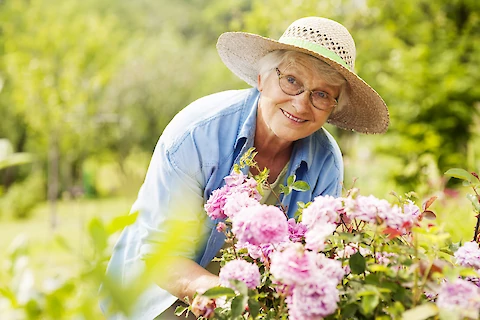
Ways to Renovate a Garden for Aging in Place
As we grow older, we realize that the body loses its strength and vigor. It becomes challenging to be active because muscles weaken and joints stifle. Therefore, seniors find it hard to engage in outdoor activities such as gardening. However, there are things you can do to make it easier for seniors. Read through to learn more about these renovation gardening tips.
Ways to Renovate Gardening Strategies for Seniors
Choose Low-Maintenance Plants
Choose low-maintenance plants because they reduce the seniors' work. Perennials, such as daisies and geraniums, are great choices because they will bloom all season long with minimal supervision from you. These types of plants will still add color and beauty to your landscape but won't require constant watering and pruning.
Choose Tools That Are Easy to Use
Seniors may not be able to lift heavy objects or perform certain tasks due to physical limitations caused by age or illness; therefore, it's important to choose easy tools. For example, hand pruners are easier than hedge trimmers because they require less strength and movement for them.
Consider a Raised Garden Bed
The aged may have issues with their backs, legs, and balance. Raised beds are easier to work in without getting on your knees and require less bending. They also allow you to reach the plants without stretching too much.
Irrigation System
Install an irrigation system, so that the seniors don't have to water by hand every day or two. You can set it up so that the system waters the plants automatically at certain times of day, such as first thing in the morning or right before sunset, when plants need water the most.
Bring Outdoor, Indoor
If the aged have limited mobility or balance, consider bringing the outdoors inside by growing houseplants such as succulents, cacti, and ferns. They'll still be able to enjoy the benefits of gardening without having to bend down or stand up too many times throughout the day.
Make It Easy to Walk Through the Garden
If you have areas that are difficult to reach or walk through regularly, consider adding paths or stepping stones so that they're easier to access. It will also reduce the risk of tripping over roots or stepping in holes in the ground.
Provide Shade
Shade can make gardening more comfortable during hot weather. It also helps protect against sunburns, which can be particularly dangerous for seniors with fair skin or who have sensitive skin or allergies.
Use Lightweight Tools in Gardening
Using lightweight tools makes gardening easier for seniors who are prone to back and shoulders problems. Moreover, a lighter tool won't strain their wrists and arms. Instead, look for lightweight tools made of aluminum or other materials that won't add extra strain on their joints.
Benefits of Gardening to Seniors
It's Therapeutic
Gardening acts as a therapeutic tool for those suffering from mental illnesses such as depression and anxiety, which can improve emotional health and mental wellbeing. It's excellent for relieving stress, anxiety, and depression by helping focus your mind on the tasks at hand and getting lost in the activity of gardening.
Provides Nutritious Fresh Produce
Gardening promotes healthy eating through fresh produce (fruits, vegetables, and herbs), which is both nutritious and delicious. A well-tended garden can yield tomatoes, cucumbers, lettuce, and peppers — the list goes on!
Low Impact Exercise
Gardening is a low-impact exercise that the aged can do without any problem. The physical movements are gentle and easy on the knees, hips, and spine. It's a great way to get their heart rate up without putting too much strain on the body.
Improves Social Interaction
Gardening can help seniors connect with others in the community who share their passion for growing flowers and plants. Also, seniors who participate in gardening projects with neighbors are more likely to feel supported and connected than those who do not participate in such activities.
Conclusion
Gardening doesn't have to stop with aging. You can make it easier for the seniors by applying the above tips. They will ensure safety as the elderly tap into the physical, emotional, and psychological benefits of nature. It would be more interesting if they would have a companion during gardening. Senior Helpers Inland Empire is one such companion who makes the older adult experience worthwhile.